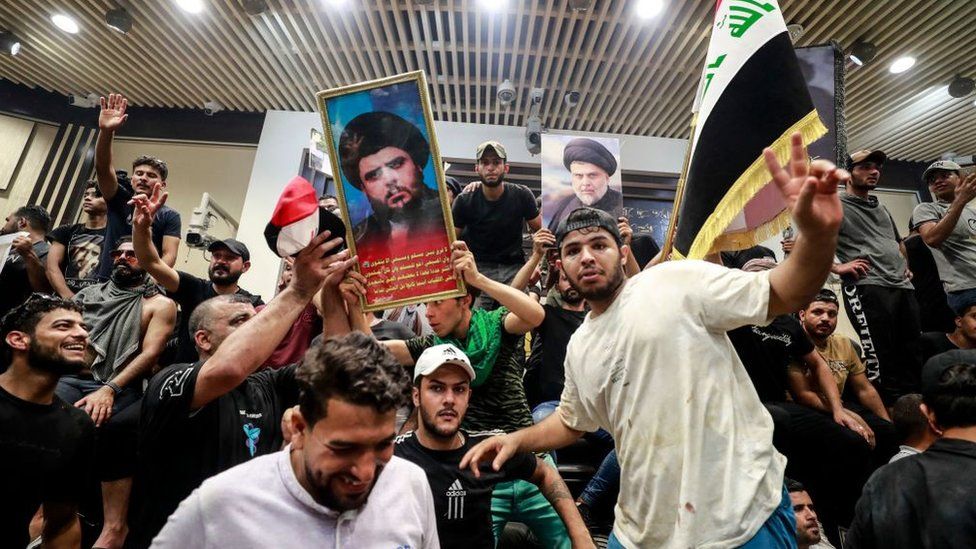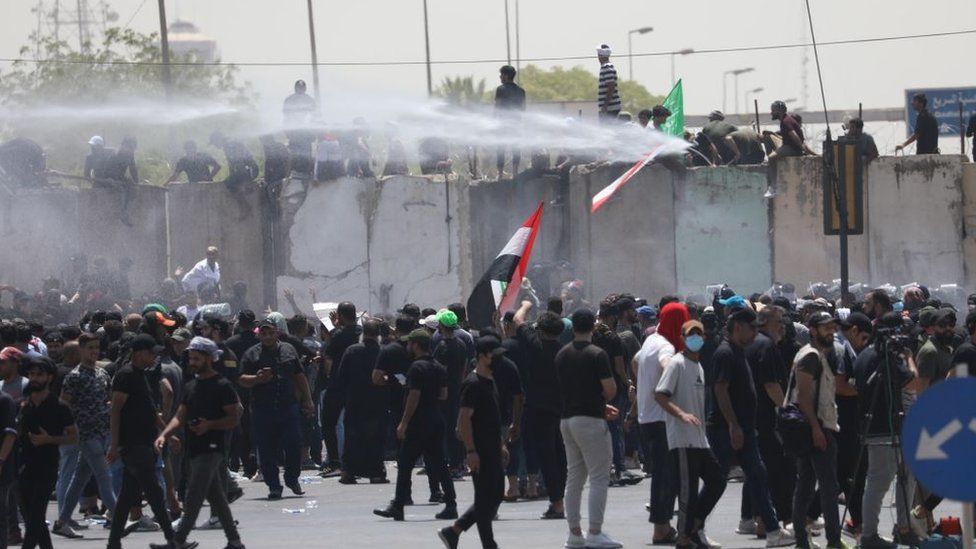Supporters of powerful Iraqi cleric Muqtada al-Sadr have stormed parliament for the second time in a week.
The protesters again breached the high-security Green Zone in Baghdad, as they oppose the nomination of a pro-Iran rival candidate for prime minister.
Over 120 people were injured in the latest unrest. Mr Sadr’s block won the most seats last October, but it is not in power due to a political deadlock.
The most influential coalition in parliament has condemned the protest.
The Shia-led Co-ordination Framework has called on Iraqis to stage “peaceful” demonstrations, adding: “The state, its constitutional bodies and civil peace are a red line.”
The Iraqi health ministry said about 100 of those injured on Saturday were civilians and 25 were security personnel. Six are in a serious condition.

The protesters have vowed to occupy parliament until further notice, AFP news agency reports.
They initially massed at the end of a bridge leading to the closely guarded Green Zone – which is home to a number of the capital city’s most important buildings, including embassies.
But dozens of them tore down concrete barriers protecting the area and ran inside parliament where they waved Iraqi flags and pictures of Mr Sadr.
Iraq’s current prime minister, Mustafa al-Kadhimi, instructed the security forces to “protect the demonstrators”.
He called on protesters to “maintain their peaceful move, avoid escalation and abide by the directives of the security forces whose goal is to protect them, and to protect official institutions”.

Saturday’s protest follows one staged on Wednesday, when hundreds of people broke into parliament.
The unrest come after nine months of stalemate, during which disputes between the country’s different political factions have prevented the creation of a new government.
Mr Sadr, a Shia cleric who wants to end US and Iranian influence over Iraq’s internal affairs, claimed victory for his nationalist Saeroun movement following October’s election.
But it has proved impossible since then to build a new governing coalition, as Mr Sadr has refused to work with rivals.
He and his supporters have opposed the candidacy of Mohammed al-Sudani – who is backed by the Co-ordination Framework – for prime minister, as they believe him to be too close to Iran.
Source: BBC
